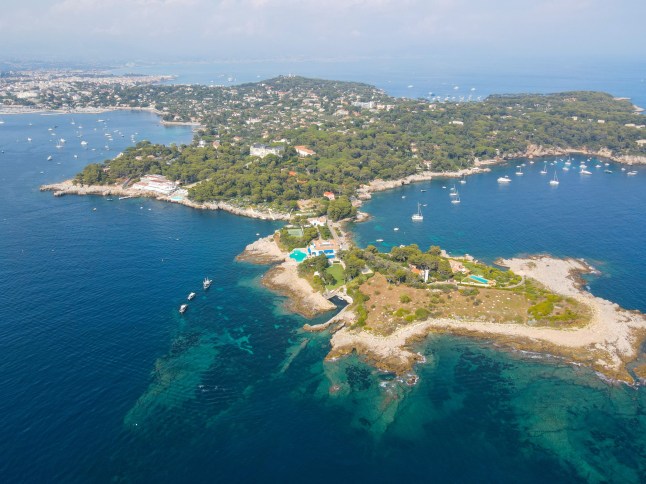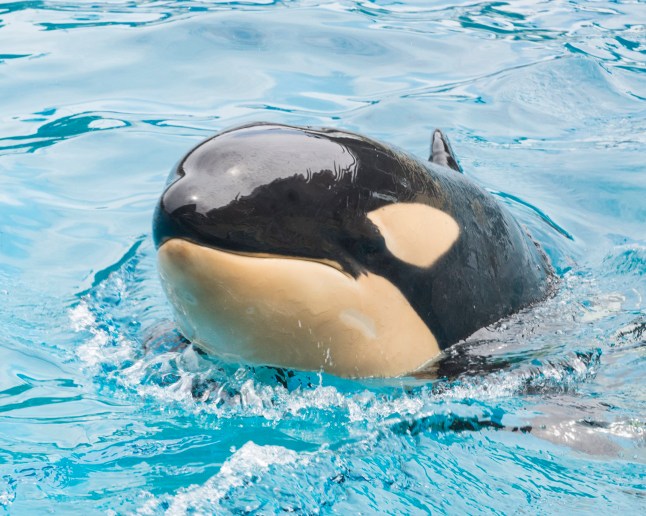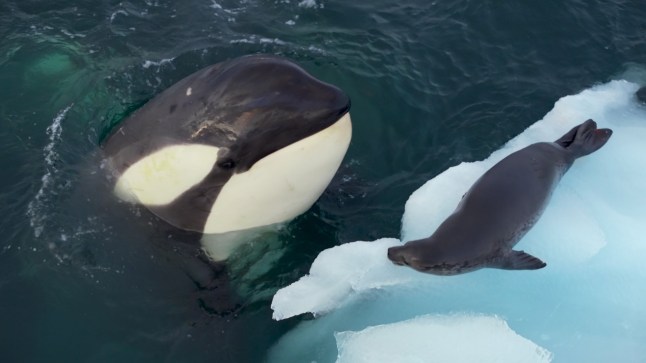
Holidaymakers heading on winter holidays this year are being warned against buying tickets for attractions where captive whales, dolphins and porpoises are forced to perform.
International wildlife charity Born Free claims more than 3,600 of these animals live in captivity around the world for human entertainment.
There are still more than 300 living in captivity in European Union countries, the charity says, citing Spain in particular, where more than 100 cetaceans – the collective term for whales, dolphins and porpoises – exist in confinement.
Last March, a marine park in France sparked a firestorm of controversy after two of its orcas died within five months of each other. Marineland, near Antibes on the French Riviera, closed on Sunday due to a law banning marine mammal shows.
Born Free says the complex and intelligent creatures live a ‘miserable existence’ in restrictive conditions such as chemically treated pools, overcrowded tanks and shallow sea pens.
The animals are then coaxed to perform unnatural and repetitive tricks in front of tourists, often multiple times a day.

Some are further exploited by forced interactions with visitors, swimming with humans, and posing for souvenir selfies.
Campaigners say this is a ‘stark contrast’ to life in the wild, where the animals live in closely bonded family groups, swim more than 100 miles a day and dive to depths of 300 metres.
While the harm caused to captive marine mammals may not be immediately evident to passing holidaymakers, Born Free is urging travellers to be aware of the physical and psychological suffering they undergo in confined environments.
This includes premature death, reduced resistance to disease, tooth trauma from biting and hitting the sides of concrete pools, and irritation of skin and eyes from chemically treated water.
There is high infant mortality and reduced survival rates among the captive animals, the charity says, adding that animals are often forced to breed or subjected to artificial insemination, as well as being drugged to control abnormal behaviour caused by boredom and stress.
Ethical whale watching: What to ask when booking a tour
Whale watching can be ethical. But it should be done in the wild, and involves maintaining a safe distance from the animals, keeping noise to a minimum and never feeding or touching them.
Whale, dolphin and porpoise watching is taking off all over Europe, particularly in Iceland, Norway, Ireland and the Strait of Gibraltar.
According to the International Whaling Commission, there are five questions you should ask before booking a tour:
- Do you adhere to any local or national whale-watching guidelines or regulations?
- How do you ensure that your tours are causing minimal disturbance to the animals?
- Do you have suitable safety measures in place?
- Do you have a naturalist or guide on board?
- Do you contribute to research or conservation in any way?
Whales, dolphins and porpoises can also sustain injuries caused by interactions with trainers and performing tricks, as well as from human fingernails, jewellery, make-up, perfume and sunscreen.
Sarah Jefferson, Born Free’s captivity campaigns information co-ordinator said: ‘We’re calling on the public not to support the suffering of captive cetaceans on their holidays.
‘Whales and dolphins in captivity face a miserable existence in barren tanks and sea pens, forced to interact with humans – in stark contrast to the rich and complex lives they live in the wild.’
Last year, former SeaWorld orca Keto, who hit world headlines in 2009 after an incident where he killed his trainer, died prematurely at Loro Parque, a large zoo and marine park in Tenerife.
As part of its Tank-Free campaign, Born Free is calling on British tourists to avoid booking captive cetacean activities and to voice their concerns to travel companies profiting from them as well as operators, hotels or businesses advertising such attractions.
People can equally notify the charity if they see dolphins and whales in captivity through its Raise the Red Flag platform, which helps the campaigner’s work to engender change and improve animal welfare.
Elsewhere, campaigners are directly urging travel companies and tour operators worldwide to end the promotion and selling of excursions that put financial gain above animal welfare.
It is also calling on countries to phase out the keeping of captive cetaceans by introducing legislation banning the practice, including measures to end animal imports, breeding and the building of new captive facilities.

Dr Mark Jones, Born Free’s head of policy said: ‘It is shocking that hundreds of cetaceans are still held in captivity throughout Europe purely for entertainment purposes.
‘This travesty must be brought to an end.
‘By continuing to promote visits to captive dolphin venues to their customers, certain travel companies are complicit in the suffering of these highly intelligent and social animals for the sake of entertainment and profit.
‘We call on them to do the right thing and to join the increasing number of travel companies that are removing these venues and experiences from their travel offering.’
MORE: Young girl killed by crocodile that pulled her from water’s edge into a lake
MORE: The ‘unspoilt’ country where an elephant knocked on my door
MORE: Rich dog, poor dog: The new breed of status symbol pet













